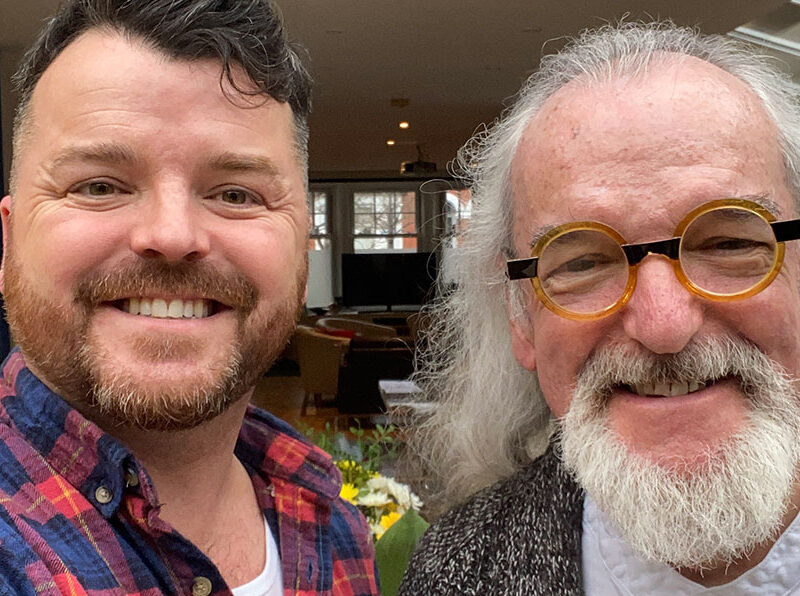
Breaking the Silence: Mental Health Helplines
Breaking the Silence: Mental Health Helplines
It’s okay not to be okay – here’s how to reach out for support & advice
Everyone struggles with their wellbeing at points and living in times of uncertainty can really take its toll.
Many of us know how it is to feel the weight of the world on our shoulders. Whether you have faced something traumatic or feel overwhelmed with life there is someone there to listen.
Whether you’re suffering from feelings of isolation, trauma, negatively spiralling moods or anything in between – it’s key to remember that it is okay to not be okay, and more importantly that there are several organisations out there ready to talk things through.
You may need practical advice, or quite simply a reassuring voice on the other end of the telephone. The helplines and services detailed below are designed to help you through tough times, and prepare for the light at the end of the tunnel; even if you’re struggling to see it right now.
1
Samaritans
With lines open 24 hours a day, 365 days a year, Samaritans are ready to listen. No judgement, no pressure – and are there for anyone.
116 123
2
MIND
The below Infoline from MIND provides an information and signposting service between 9am and 6pm, Monday to Friday. They can point you in the right direction for local mental health support, or lend an ear to more general questions and current struggles.
0300 123 3393
4
CALM
CALM (Campaign Against Living Miserably) is a leading movement against suicide. They operate a helpline between 5pm-12am as well as a webchat option, plus lots of engaging feature articles on mental health.
0800585858
5
Rethink Mental Illness
Rethink Mental Illness’ Advice & Information Service are on hand to offer general advice on living with mental illness, as well as practical information and guidance on carers rights, welfare benefits and The Mental Health Act.
0808 801 0525
6
Cruse Bereavement Support
Cruse is the UK’s leading bereavement charity there to offer support, information and campaigning through one of the most painful times in life. The helpline is open seven days a week.
0808 808 1677
7
Age UK
Age UK offer support for older people who find themselves in hardship financially or emotionally. Their website offers a huge amount of information, support and advice. The helpline operates 8am – 7pm every day. They also operate a telephone friendship service where a volunteer will check in weekly for a friendship call.
0800 678 1602
8
BetterHelp
BetterHelp offers online access to affordable and convenient licensed psychologists, marriage and family therapists, clinical social workers and board-licensed professional counsellors. The website will match you to a personalized therapist that is tailored to your needs.
9
South West London and St George’s Mental Health NHS Trust
SWLSTG are a leading provider of mental health services across Southwest London. Their website offers extensive advice and information to services, including information on the NHS Recovery Cafes in Tooting, Wimbledon, Twickenham, Kingston and Sutton, which offer a safe and supportive space which doesn’t require an appointment or referral for those over 18 years old.
10
PTSD UK
PTSD UK is a dedicated UK post-traumatic stress disorder charity. Their website has lots of information on PTSD to help you to understand the condition and help guide you to the correct channels of support and treatment.
Be aware of some of the common signs of depression in yourself and others. Everyone is different, but MIND says that these feelings and emotions can be signs:
- Feeling down, upset or tearful
- Being restless, agitated or irritable
- Guilty, worthless and down on yourself
- Empty and numb
- Isolated and unable to relate to other people
- Finding no pleasure in life or things you usually enjoy
- A sense of unreality
- No self-confidence or self-esteem
- Hopeless and despairing
- Suicidal
How you might behave:
- Avoiding activities you usually enjoy
- Self-harming or suicidal behaviour
- Difficulty speaking, thinking clearly or making decisions
- Losing interest in sex
- Difficulty remembering or concentrating on things
- Using more tobacco, alcohol or other drugs than usual
- Difficulty sleeping, or sleeping too much
- Feeling tired all the time
- No appetite and losing weight, or eating too much and gaining weight
- Physical aches and pains with no obvious physical cause
- Moving very slowly, or being restless and agitated
READ MORE…
Local suicide prevention charity Beder on how cooking and food can help with mental health.
A therapist reveals the benefits of walking for your mental wellbeing.






